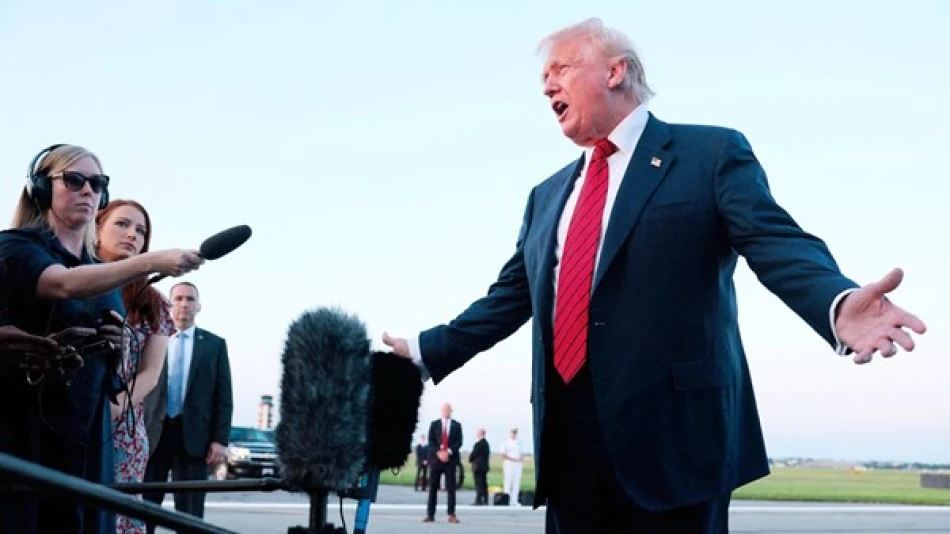
Trump Urges Israel to Ensure Food Security for Gaza Residents
Trump Calls for Israeli Food Aid to Gaza as Democrats Push Palestinian Statehood Recognition
President Donald Trump has publicly urged Israel to provide food assistance to Palestinians in the besieged Gaza Strip, stating he does not want people there to die of hunger. The remarks come as 13 Democratic House members separately called on the Trump administration to recognize Palestinian statehood, highlighting the complex diplomatic pressures surrounding the Gaza crisis.
Trump's Humanitarian Appeal Amid Ongoing Crisis
Speaking in Pennsylvania, Trump made his position clear: "We want Israel to provide food to the Palestinians in Gaza." The president emphasized that the United States is already contributing significantly to Gaza's food supply, referencing the $60 million in food aid his administration sent to the territory last week.
This direct appeal to Israel represents a notable shift in tone from Trump's typically unwavering support for Israeli military operations. The statement suggests growing concern within the administration about the humanitarian catastrophe unfolding in Gaza, where over two million Palestinians face severe food shortages amid the ongoing blockade.
Democratic Pressure for Palestinian Recognition
The timing of Trump's comments coincides with renewed Democratic efforts to reshape U.S. policy toward Palestine. Thirteen House Democrats sent a joint letter to the Trump administration calling for formal recognition of Palestinian statehood, according to reports from Axios.
The lawmakers urged all nations that have not yet recognized Palestine—including the United States—to acknowledge it as an independent state. This push reflects growing frustration among progressive Democrats with America's traditional approach to the Israeli-Palestinian conflict.
Strategic Implications for Middle East Policy
Trump's humanitarian focus while maintaining support for Israel suggests an attempt to balance competing pressures without fundamentally altering U.S. alliance structures. This approach mirrors strategies used by previous administrations that sought to address Palestinian suffering while avoiding direct confrontation with Israeli policies.
The $60 million aid package, while substantial, represents a fraction of the estimated humanitarian need in Gaza. International aid organizations have consistently warned that food assistance alone cannot address the root causes of the crisis without addressing movement restrictions and economic blockade measures.
Broader Context of Regional Dynamics
The developments occur against the backdrop of shifting Middle Eastern alliances, where several Arab nations have normalized relations with Israel while Palestinian statehood remains unresolved. Countries like Saudi Arabia have indicated that Palestinian statehood recognition could be part of future normalization agreements, adding regional pressure for progress on this front.
The Democratic push for statehood recognition aligns with recent moves by European nations, including Spain, Ireland, and Norway, which recognized Palestinian statehood in 2024. This growing international momentum creates additional diplomatic complexity for U.S. policymakers seeking to maintain traditional alliance structures while addressing humanitarian concerns.
Most Viewed News

 Layla Al Mansoori
Layla Al Mansoori






